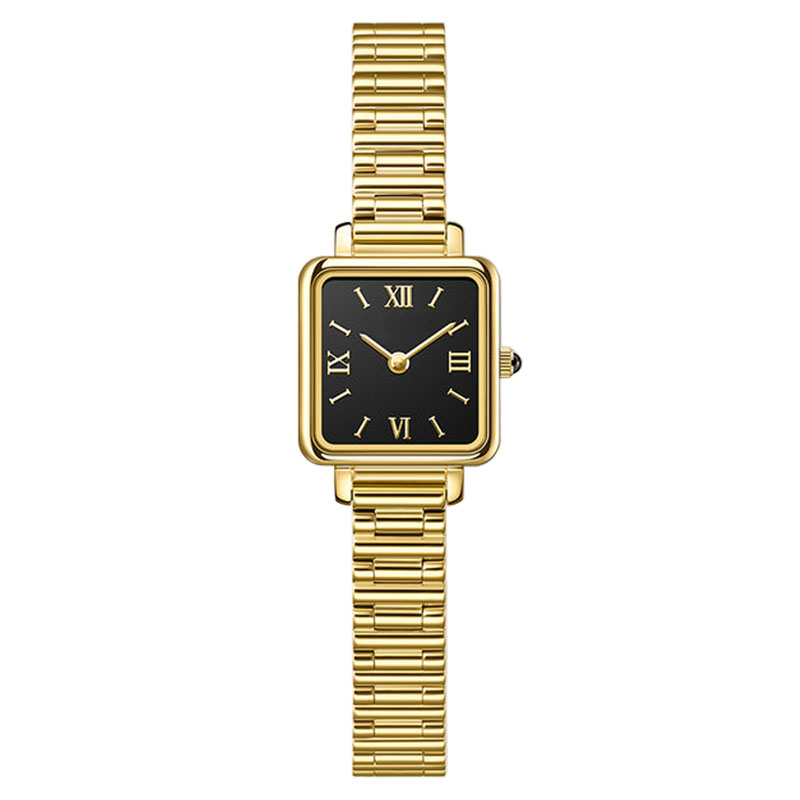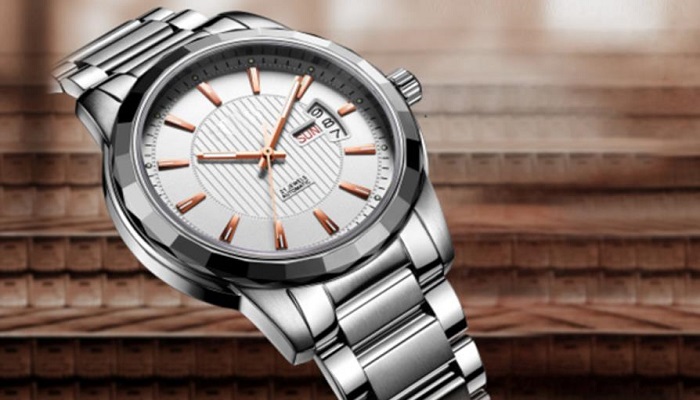


Whether it is a gift watch, a promotional watch, or a customized business watch, in addition to the beautiful appearance of the watch, the material used for the customized watch also needs to be taken into consideration while reducing the cost without affecting the appearance and comfort of wearing. All major brands of watches use state-of-the-art materials in their watches from the inside out. Not only do they give a new look to the model, but they also help improve durability and reduce weight to increase their competitiveness in the watch market.
Before the twentieth century, watchmakers used natural jewels as bearings for gear trains and other elements susceptible to maximum wear. These jewels help reduce friction and increase accuracy. In 1902, French chemists established a method of making synthetic jewels, or rubies, which are used in modern watch movements today.

Precious metals have been a part of watchmaking since the inception of timepieces. Gold in its various forms, yellow, white, rose, and red, has always been an important material in many parts of watches. The most common place gold is found is in watch cases. Watch manufacturers also use precious metals such as gold in watch movements.
Watchmakers use nickel-plated brass for a variety of applications from weaponry to basic nuts and bolts. Nickel-plated brass appeals to watchmakers primarily because it is a less expensive alternative to precious metals and stainless steel, and is more resistant to corrosion than brass. The final quality is crucial to the watch's components and its longevity. In early timepieces, watchmakers used nickel-plated brass for internal and external elements, from the components of the movement to the case.
Compared to gold, stainless steel is lighter, corrosion-resistant, and cost-effective. The growing number of stainless steel watches also reflects the watch's evolution in style and destination. Gold is an appropriate material when timepieces are more of a jewelry item and a status symbol.

Bronze is one of the earliest materials used by humans. Due to the non-corrosive and anti-magnetic properties of bronze materials, bronze cases are a good choice for diving watches. Now, bronze watches have transcended function and fashion. From a watch design perspective, the bronze aesthetic will develop a unique patina over time.
Now many watch manufacturers replace metal parts with silicon, mainly in the movement. Silicon has many advantages over metals: it is lightweight, temperature-resistant, frictionless, antimagnetic, and harder than metals. Silicon components basically allow the movement to run at a higher frequency, and the result is a more accurate watch.
Decades after stainless steel entered the watch market, titanium came into play. Although titanium is one of the most comfortable materials for watchmaking (and very light), it will never be as popular as stainless steel. While it offers many of the same benefits, such as durability and corrosion resistance, it costs more. However, there are many titanium watches on the market today. Most commonly used in dive and tool watches.
Carbon fiberglass, this iteration of carbon incorporates colored glass fibers during infusion at high temperatures. The effect is 100 times harder than steel, resulting in a watch that is truly unique in appearance.
The above are the materials used by watches of different brands and grades. When customizing a watch, you can communicate with the watch manufacturer according to your actual needs to make a watch that suits your brand and customers.

2F, Building A, Shimei Industrial Park, Dalang Town, Longhua District, Shenzhen, China